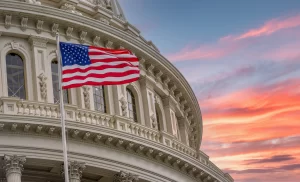Simultaneous Detection of COVID-19 Variant B.58 in 58 Cases Raises Economic Preparedness Concerns in the UK
2 min read
Health Crisis Sparks Economic Evaluations Amid Fears of Wider Disruptions.
The unexpected and simultaneous identification of COVID-19 Variant B.58 in 58 individuals across various regions of the United Kingdom has ignited alarm and led to a reevaluation of the nation’s economic readiness. As health authorities respond swiftly to contain the outbreak, economic experts are scrutinizing the potential consequences for the country’s economic resilience.
The rapid spread of the new variant has prompted a surge in testing, targeted quarantines, and localized restrictions in the affected areas. While health and safety remain paramount, the economic implications of this development are undeniable.
The business community is closely watching the situation as concerns arise about potential disruptions to daily operations, supply chains, and workforce availability. The retail and service sectors, which have been working to recover from the pandemic’s previous impacts, could face renewed challenges if localized restrictions impact consumer mobility and spending.
Market analysts emphasize the importance of agility and adaptability as the situation unfolds. The immediate impact on stock markets and investor sentiment highlights the interconnectedness of health and economic concerns. The lessons from previous pandemic waves are informing responses, and financial institutions are working to provide stability and support to mitigate potential economic shocks.
Tourism, a significant contributor to the UK economy, could experience renewed setbacks as concerns about the variant’s spread impact travel plans and visitor numbers. Additionally, cross-border trade and movement could be hampered if travel restrictions are tightened in response to the outbreak.
The UK government’s swift and coordinated response is crucial in mitigating the potential economic fallout. Enhanced testing, effective communication, and targeted interventions can help balance health needs with economic stability.
As health officials and economic authorities work hand in hand to manage this evolving situation, the nation’s ability to navigate these challenges will be a testament to the resilience of both its healthcare system and its economy.




